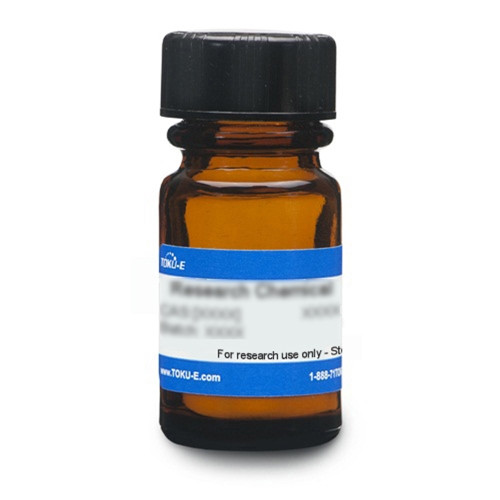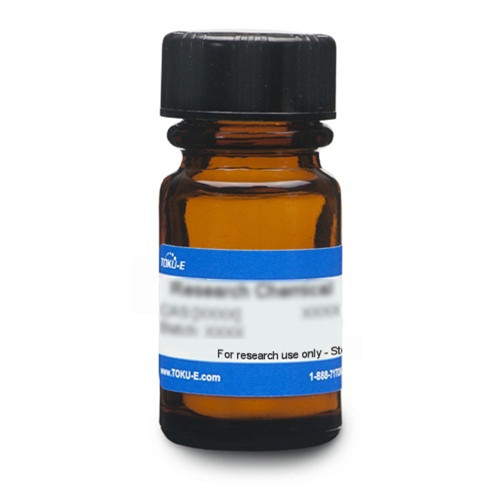Cetylpyridinium Chloride (syn: CPC) is a cationic quaternary ammonium antiseptic compound commonly used in oral hygiene products as well as nasal sprays and some pesticide formulations. An antibacterial with broad-spectrum activity, it can be used as a preservative in pharmaceutical formulations. The compound was first described in 1939 by Wm. S. Merrell Company (Cincinnati, Ohio). Its antimicrobial activity correlates with the hydrophobicity of the side chain.
This product is considered a dangerous good. Quantities above 1 g may be subject to additional shipping fees. Please contact us for questions.
| Mechanism of Action | The hexadecane tail of the molecule integrates into the lipid membrane resulting in membrane disorganization. At low concentrations, the compound interferes with osmoregulation and homeostasis. At high concentrations it leads to membrane disintegration with eventual leaking of cytoplasmic contents. Damage of proteins and nucleic acids and cell wall lysis via autolytic enzymes result. |
| Microbiology Applications |
The antimicrobial properties of CPC has been studied in vitro. The majority of the analysis has been done on plankton. However, studies with biofilms have revealed that S. mutans showed decreased susceptibility to CPC when grown in biofilms with V. parvula. Biofilms from 10 (oral) and 18 (bloodstream) isolates of Methicilln-resistant Staphylococcus aureus (MRSA) revealed that mouthwash with CPC reduced bacterial viability by less than 60% and authors concluded they were ineffective for MRSA biofilms (Sreenivasan et al, 2012). |
| Spectrum | Cetylpyridinium Chloride has a broad spectrum of activity and is active against Gram-positive and Gram-negative bacteria as well as a few pathogenic fungal species. |
| Molecular Formula | C21H38ClN • H2O |
| References |
Mao X et al (2020) Cetylpyridinium Chloride: Mechanism of action, antimicrobial efficacy in biofilms, and potential risks of resistance. Antimicrob. Agents Chemother. 64(8):10.1128/aac.00576-20 Smith K, Robertson DP, Lappin DF, Ramage G (2013) Commercial mouthwashes are ineffective against oral MRSA biofilms. Oral Surg. Oral Med. Oral Pathol. Oral Radiol. 115(5):624-629 PMID 23510687 Sreenivasan PK, Haraszthy VI, and Zambon JJ (2012) Antimicrobial Efficacy of 0·05% Cetylpyridinium Chloride Mouthrinses. Lett. Appl. Microbiol. 56(1): 14-20 |







